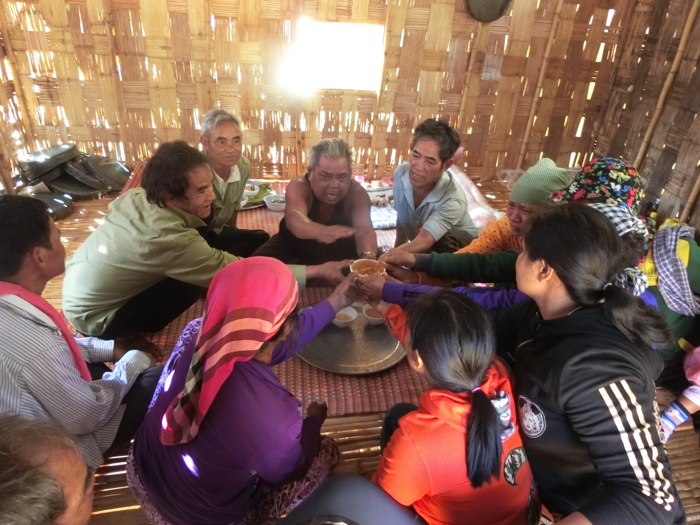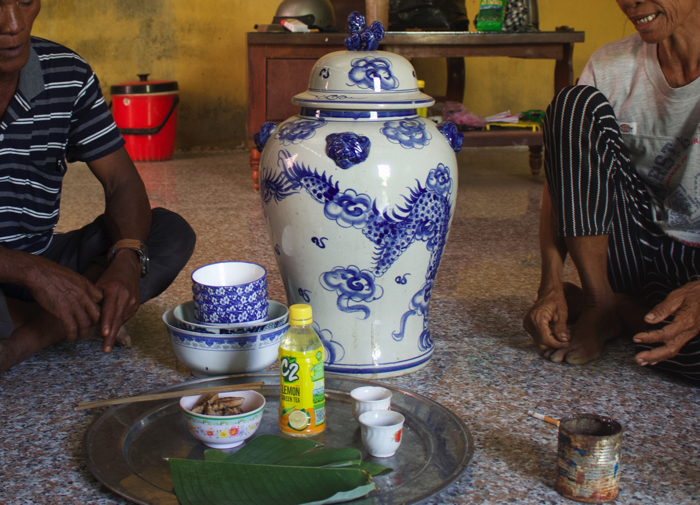- Project Leader : Kang Yangu (Tokyo University of Foreign Studies, Research Institute for Languages and Cultures of Asia and Africa)
Outline of Research
Raglai people living in Bac Ai district, Ninh Thuan province, located in South-Central Vietnam, are experiencing a rapid change of livelihood after resettlement in 2005 caused by a government-led dam construction project. Along with this change, the Raglai are transforming sacrificial rituals directed to spirits and ancestors, which are closely related to maintaining their matrilineal descent groups. In examining this transformation, the study investigates what people are trying to achieve through maintaining a matrilineal descent group and sacrifice to ancestor spirits.
Description
The research investigates what the Raglai are trying to achieve through maintaining matrilineal descent groups and sacrifice to ancestor spirits. In Raglai society, the connection among members of a matrilineal descent group is not only by blood, but also constituted by practices such as inheriting ancestor treasure, affinal gift exchange, life rituals, and sacrifice to ancestor spirits. Citing their costly and dangerous nature, however, in 2005 people decided to abolish ancestor-related ritual practices. Despite this, some descent groups continue to occasionally hold rituals for ancestor spirits, seeking protection from calamity and enhancement of production. From these facts, we can assume that the Raglai are trying to increase production through sacrifice. To understand the mechanism of sacrifice that gives the Raglai increased power to produce, the research investigates the local concepts of production and property that underlie the practices of maintaining a matrilineal descent group.
The significance of the research lies in its approach. By investigating the local concepts of production and property to understand the recent transformation of ancestor worship, we can deepen our understanding of how power is conceived. By presenting the Raglai understandings of power and the mechanisms of appropriating it in a form that is comparable with similar practices in other places, the study will contribute to developing a discussion about the concept of power in Southeast Asia. Finally, the research will enable us to see the recent transformation of ancestor worship in the area not as a loss of tradition or representation of ethnic identity, but as a political choice to challenge the source of power. This view will deepen our understanding of the existing tension between the state and ethnic minorities in Vietnam.
 A ritual held by a matrilineal descent group |
 A vase and bowls infused with soul of the dead. They will be inherited over generations as a treasure brought by an ancestor. |
